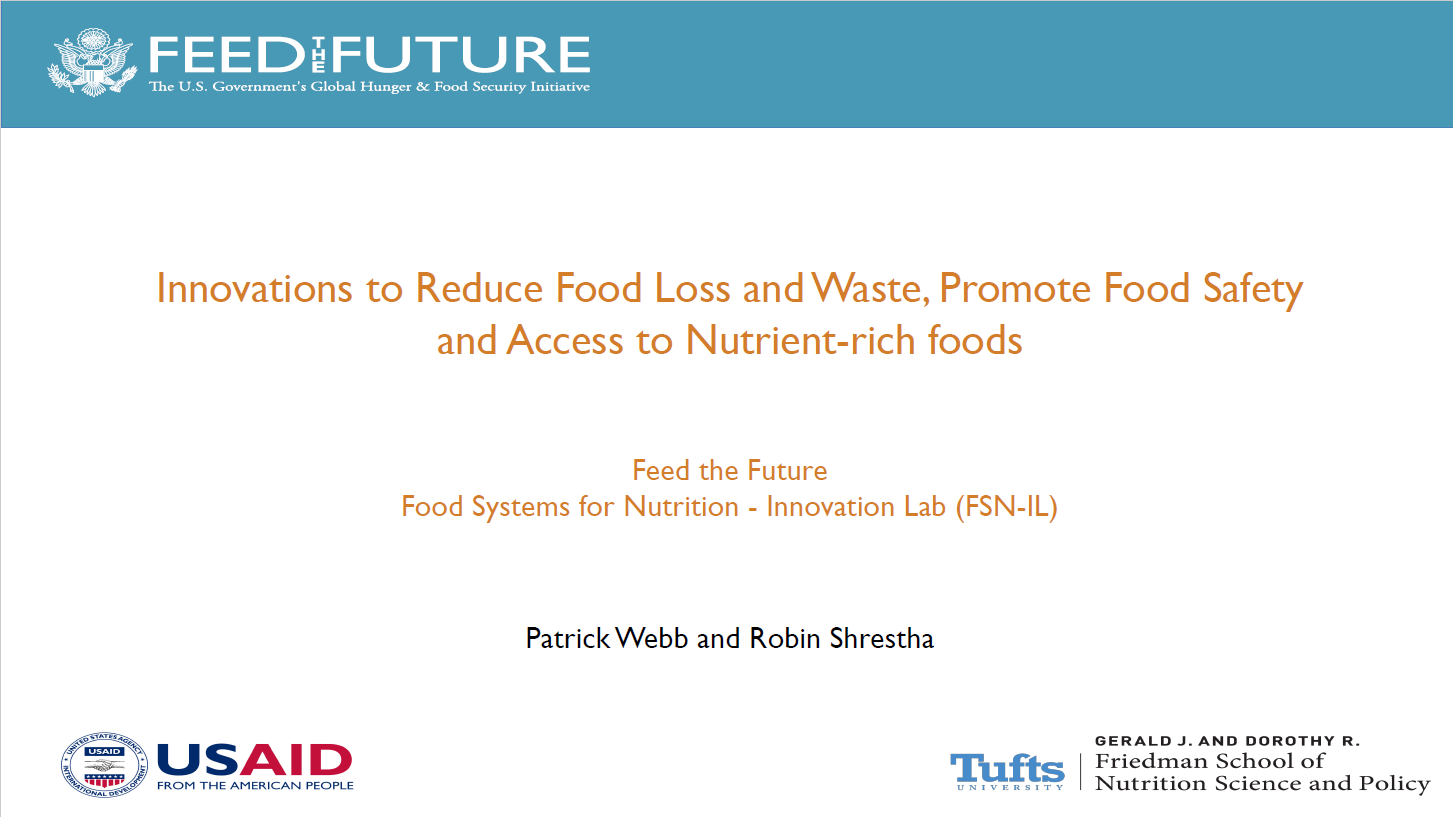
- This event has passed.
Introduction to the FSN-IL in Bangladesh
January 29, 2023 @ 7:00 pm - 8:00 pm

Webinar Description:
Bangladesh has identified priority areas to improve inputs use efficiency and productivity, adoption of Good Agricultural Practices (GAP), and agri-food system modernization. To boost on-farm activity, Bangladesh focuses on access to extension services and aggregation models such as farmer groups, cooperatives, to bring economies of scale to operations. Bangladesh focuses on forward and backward linkages across the food systems value chain to improve access to local produce to wider markets through private investments in inputs, processing, storage, packaging, transportation and marketing of agri-food products and digital services, with special attention in hard-to-reach areas. In Bangladesh, substantial food and nutrient quality are lost along the agri-food system value chain arising from harvest and postharvest losses due to inadequate infrastructure and technologies. Developing and adopting best food safety practices (by private sector), enforcement of regulations and policies, and improving capacity of monitoring and oversight systems for food safety are key priorities to enhance off-farm value addition and commercialization of food commodities in Bangladesh.
The Food Systems for Nutrition Innovation Lab (FSN-IL) is a five-year activity supported by the United States Agency for International Development (USAID), Bureau for Resilience and Food Security (RFS) as part of Feed the Future. FSN-IL is designed to generate new evidence & disseminate promising innovations that support uptake and upscaling promising nutrition-sensitive food system solutions targeted on improving access and availability of nutrient-dense foods, ensuring food safety, and preventing food loss and waste. This introductory webinar provides an opportunity for the FSN-IL to introduce the USAID-supported FSN-IL project in Bangladesh and discuss the research for development and human and institutional needs for Bangladesh’s food systems transformation agenda.
Speakers:
- Patrick Webb, Food Systems for Nutrition Innovation Lab, Tufts University
- Robin Shrestha, Food Systems for Nutrition Innovation Lab, Tufts University
